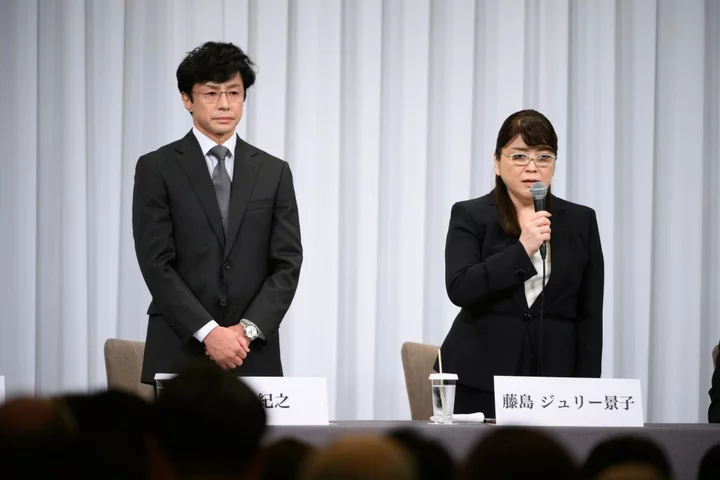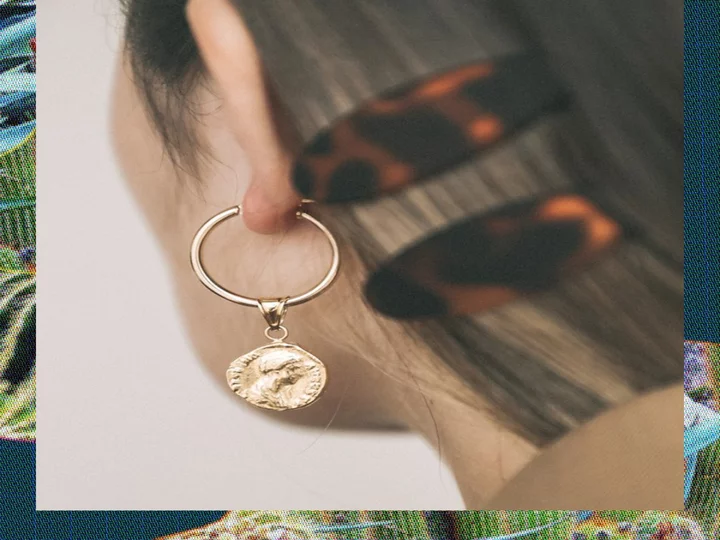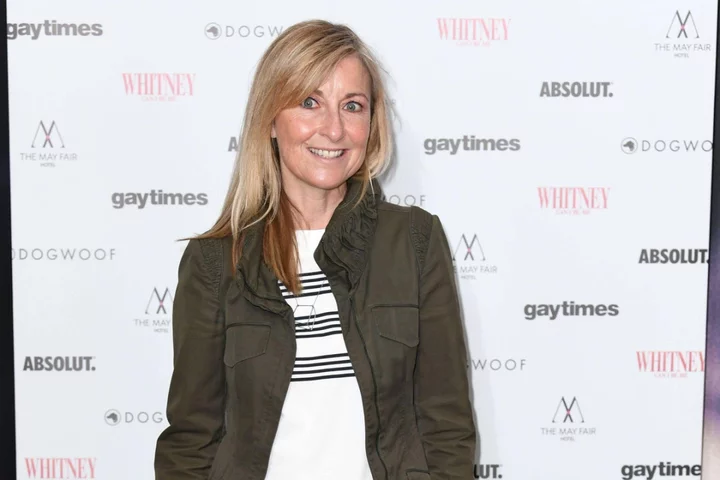Two of Japan’s top beer companies, Suntory Holdings Ltd. and Kirin Holdings Co., said they will cut commercial ties with J-pop talent agency Johnny & Associates. Inc., joining the growing number of companies pushing the firm for more changes after it acknowledged its late founder sexually abused hundreds of young boys over more than four decades.
For years the dominant talent agency in the country, Johnny’s — named for founder Johnny Kitagawa — is also under pressure from longtime clients Nissan Motor Co., Japan Airlines Co. and McDonald’s Japan. Companies that have used pop stars on Johnny’s roster in their advertising campaigns now say they can’t work with artists from the agency without more evidence of reform.
The family-held firm — whose name is better known than many of its individual stars — recently acknowledged it failed to stop Kitagawa’s serial sexual abuse. Last Thursday, Julie Keiko Fujishima, Kitagawa’s niece, stepped down as president but said she would stay on as a director to organize help for victims. She named veteran Johnny’s artist Noriyuki Higashiyama as her successor.
Head of J-Pop Talent Agency Resigns Over Sex Abuse Scandal (1)
Suntory won’t renew its contract with singer Hokuto Matsumura to promote beer alternative All-Free unless “adequate measures are taken to compensate victims and prevent a recurrence,” a spokesperson said Tuesday. A Kirin spokesperson said the company won’t sign further contracts until the agency “exerts governance and adopts a clear stance on human rights.”
Though allegations of sexual abuse surrounded the agency for years, the formal statement and Fujishima’s resignation spurred companies to action, said Mamoru Nishiyama, associate professor of advertising and marketing at J.F. Oberlin University. He added that many would be dissatisfied with the extent of reforms announced by the company so far.
“Johnny’s hasn’t even changed its name,” he said. If the firm can’t demonstrate structural change, “it will be hard for companies to use its artists.”
Nissan said this week that it would hold off on producing new promotional materials featuring Johnny’s stars. The country’s biggest brewery, Asahi Group Holdings Ltd., last week announced plans to end its relationship with the agency when its contracts expire. JAL also said it wouldn’t work with Johnny’s until it had examined the company’s efforts to help victims and prevent any recurrence.
McDonald’s Japan, which features Takuya Kimura, one of the most enduring Johnny’s stars, in its advertisements, also said it would not renew contracts with the agency.
Tokio Marine & Nichido Fire Insurance, a subsidiary of Tokio Marine Holdings, removed the image of Arashi member Masaki Aiba from its website on Friday. The insurer has decided not to renew its contract with the agency and is considering canceling its current contract, a spokesperson said.
Though it is the artists, not company executives, who promote products, the agency typically manages those contracts and takes a cut of revenue. If the job of a talent agency is to make a star famous and rich, the flight of advertisers could press Johnny’s to take more drastic measures.
It could also alienate some loyal fans, who see it as unfairly punishing the stars, said Hidehiko Kataoka, an independent marketing and PR adviser. At least one company, sandwich chain MOS Food Services Inc., said it would go forward with planned advertisements featuring Johnny’s stars.
Before his death in 2019, Kitagawa brought bands such as SMAP, Arashi and Sexy Zone to prominence in the world’s second-biggest recorded music market and beyond. He exerted tight control over access to the agency’s stars, which may have deterred close scrutiny of his abuse by the country’s media and advertising firms.
Weekly news magazine Shukan Bunshun ran a story about Kitagawa’s abuse in the late 1990s, but the mogul was never charged. A documentary broadcast by the BBC in March this year helped prompt some victims to speak out about their experiences, finally spurring Johnny’s to appoint an outside panel to investigate the scandal.
--With assistance from Nao Sano, Yuki Furukawa and Mayumi Negishi.









